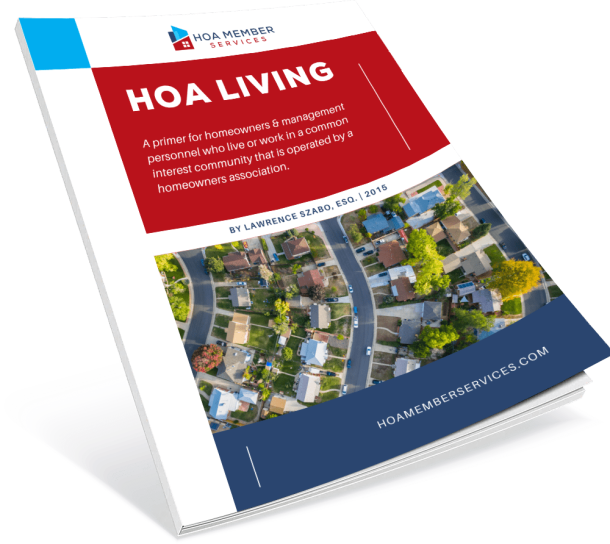Understanding the Process for Enforcing an Association’s CC&Rs
- Governing Documents
People who are vested with the responsibility of managing a homeowners or property owners association, and the members of the association, must act in accordance with applicable state and federal laws, as well as the association’s governing documents. The association’s declaration of covenants, conditions and restrictions (“CC&Rs”) is a recorded document that contains use restrictions that are presumed to be valid and are enforceable unless they are found to be unreasonable.
Whether an association’s CC&Rs are “reasonable” is determined by reference to the common interest development as a whole and not by reference to a specific homeowner. Because the provisions contained in an association’s CC&Rs are presumed to be valid, the party challenging the provision has the burden of proving otherwise. The restrictions contained in an association’s CC&Rs will be enforced unless the restriction is found to be: (i) arbitrary; (ii) impose burdens on the property that substantially outweigh the restriction’s benefits to the association’s residents; or (iii) in violation of a fundamental public policy.
Duty to Investigate and Enforce Restrictions
Associations have a duty to enforce their governing documents and when they fail or refuse to do so, members can sue the association for damages and for injunctive relief to compel it to take action to enforce its CC&Rs. Since associations have a duty to enforce restrictions, it follows that they have a duty to investigate complaints of alleged violations. The duty to investigate alleged violations stems from the fiduciary duty of due diligence that is imposed on association directors. To fulfill that duty, an association’s board must make reasonable inquiry of alleged violations before making decisions. This does not mean that the directors must investigate a violation–they can rely on managing agents, committees, or others to gather information for their review and discussion. The directors cannot disregard what is going on in the conduct of the association’s business and have it said that they are exercising their sound business judgment.
Decision to Enforce CC&Rs
When an association decides to take action to enforce an owner’s compliance with its CC&Rs, the association must show: (i) that it followed its standards and procedures in connection with the enforcement process; (ii) that the procedures followed were fair and reasonable; and (iii) the association’s decision was made in good faith and was reasonable, and not “arbitrary” or “capricious.”
An ”arbitrary” decision is a decision that is based on random choice or person whim. Black’s Law Dictionary defines arbitrary as “Willful and unreasoning action, without consideration and regard for facts and circumstances presented……..bad faith or failure to exercise honest judgment.” A ”capricious” decision is a decision that is impulsive and unpredictable and subject to whim. Black’s Law Dictionary defines arbitrary and capricious action as “willful and reasonable action without consideration or in disregard of facts or law or without determining principle.”
Due Process
Subscription Required to Continue Reading
To view the full HOA Featured Article, you must have a Subscription with HOA Member Services
Become a Member
Personal Monthly
-
Access to over 600 Articles & Case Decisions
-
Access to hundreds of Resources
-
HOA Newsletter
-
Free Copy of HOA LIVING
-
25% OFF Download Forms
-
1 User
Personal
-
Access to over 600 Articles & Case Decisions
-
Access to hundreds of Resources
-
HOA Newsletter
-
Free Copy of HOA LIVING
-
25% OFF Download Forms
-
1 User
Pro
-
Access to over 600 Articles & Case Decisions
-
Access to hundreds of Resources
-
HOA Newsletter
-
Free Copy of HOA LIVING
-
Free Unlimited Access to Download Forms (save $1000s!)
-
Unlimited Personal Support from HOA Attorney
-
1 User
HOA Team
-
Access to over 600 Articles & Case Decisions
-
Access to hundreds of Resources
-
HOA Newsletter
-
Free Copy of HOA LIVING
-
Free Unlimited Access to Download Forms (save $1000s!)
-
Unlimited Personal Support from HOA Attorney
-
Up to 10 Users

